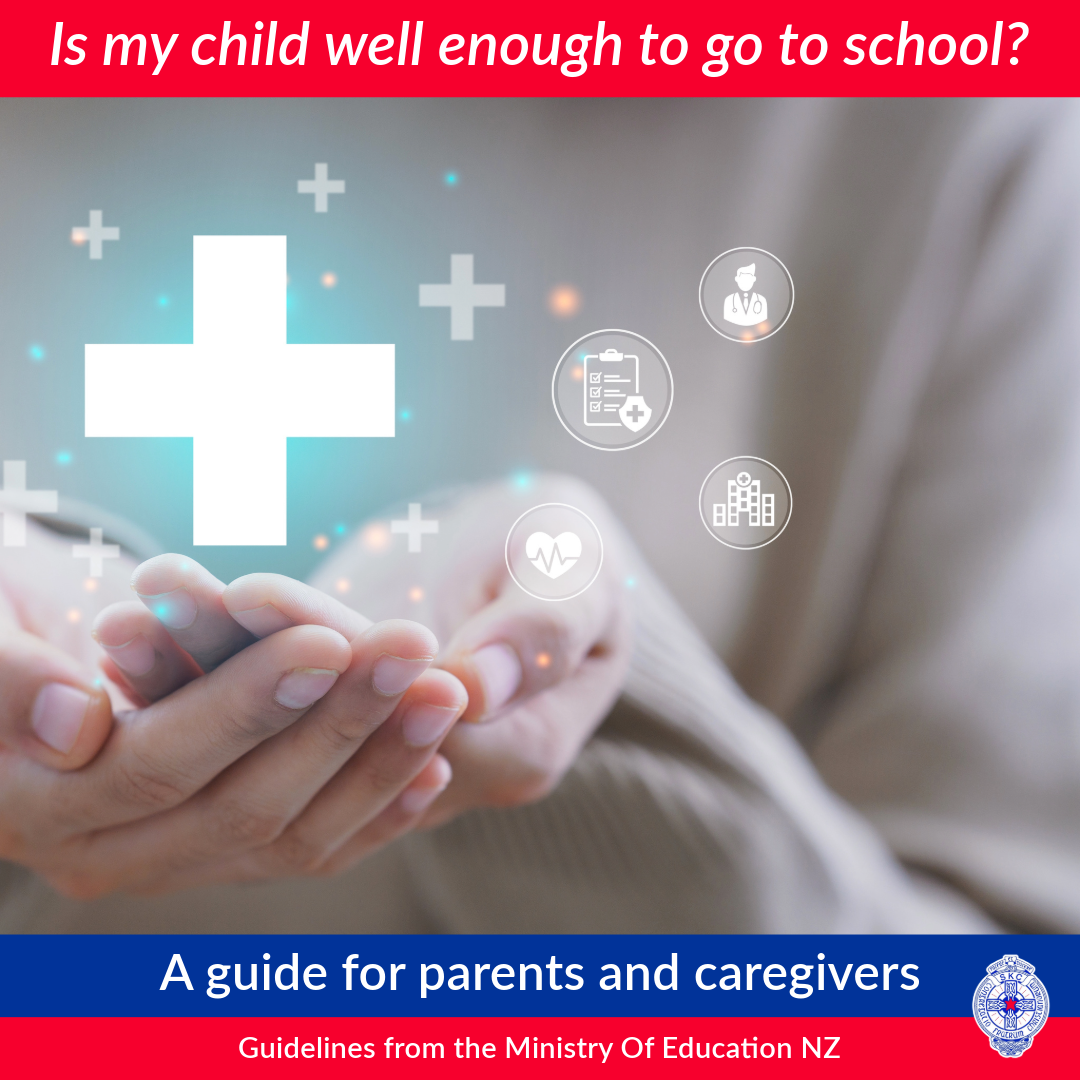
Is my child well enough to go to school?
School Notices
A guide for parents and caregivers: is my child well enough to go to school?
We know that going to school every day is important for all students. But as a parent or caregiver, it can be difficult deciding if your child is well enough to attend school.
Here is some advice to help you decide when it is okay to send your child to school, when you should keep your child at home, and when you should contact a health professional for advice. This advice is based off in-depth guidance prepared by Te Whatu Ora | Health New Zealand, which you can view here.
Knowing if your child is well enough to go to school: guidance for parents and caregivers – Te Whatu Ora: https://bit.ly/4cK4H9F
My child has mild symptoms that are unlikely to be infectious. Should they attend school?
If your child tests negative for COVID-19 and they do not have any of the symptoms of concern outlined below, there are some mild symptoms that could be caused by a condition or reaction rather than an infectious illness that mean it is okay for your child to still be at school.
Examples include a happy energised child who has mild respiratory symptoms (cough, headache or runny nose) with no fever, their usual hay fever and allergy symptoms (sneezing, stuffy nose or an itchy face), or skin problems that are not infectious, such as eczema or insect bites.
Learn more about these symptoms here:
When a child has symptoms but can still attend school – Te Whatu Ora:https://bit.ly/4dYKEoP
If your child has any of these mild symptoms but is well enough to go to school, support them to go and let their teacher know.
When should I keep my child home from school?
You should keep your child home from school if they are:
- too sick to learn and need time to rest and recover
- have symptoms of concern including fever, vomiting, diarrhoea, sore throat, skin infections such as school sores, a new rash or difficulty breathing
- have tested positive for COVID-19 (more information on symptoms, testing, and when it is safe to return to school, can be found below)
- a household contact of someone with COVID-19, they develop symptoms themselves and they are testing with a rapid antigen test over a 48-hour period to see if they present a positive result during that time
- have an infectious illness and have been advised to stay home by their local public health team or their healthcare provider.
If you have COVID-19 – Te Whatu Ora:https://bit.ly/471NNC0
Do I need to inform the school if I keep my child home from school?
Yes. It’s important to let the school know that your child won’t be at school and to explain why.
Who can I contact for health advice?
If you ever feel worried about your child’s health, contact your doctor or healthcare provider. You can also call Healthline on 0800 611 116 anytime, 24 hours a day, 7 days a week, for free health advice, treatment and information about what to do next.
The guidance provided by Te Whatu Ora also contains information and links to other urgent and non-urgent healthcare providers or services that can offer the health advice and care that you need.
When should my child return to school?
As soon as they are unlikely to still be infectious and are well enough to join in with school activities. It is important for your child to reconnect with their peers and get back to learning. If your child cannot manage full days initially, e.g. due to tiredness, discuss this with your child’s school.
In general, a doctor’s certificate or clearance should not have to be provided for your child to go back to their school after being unwell.
If you have COVID-19 – Te Whatu Ora:https://bit.ly/471NNC0
Article added: Tuesday 27 August 2024

